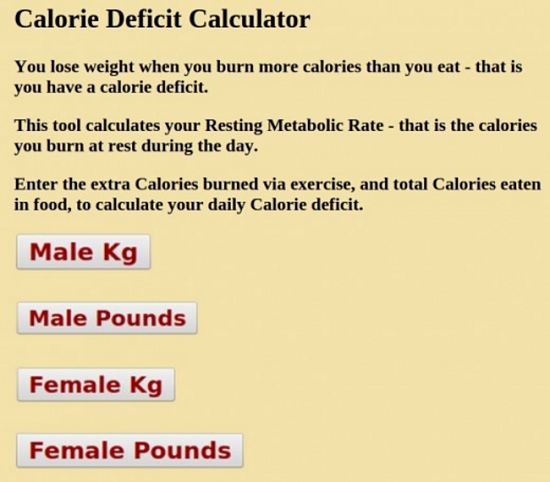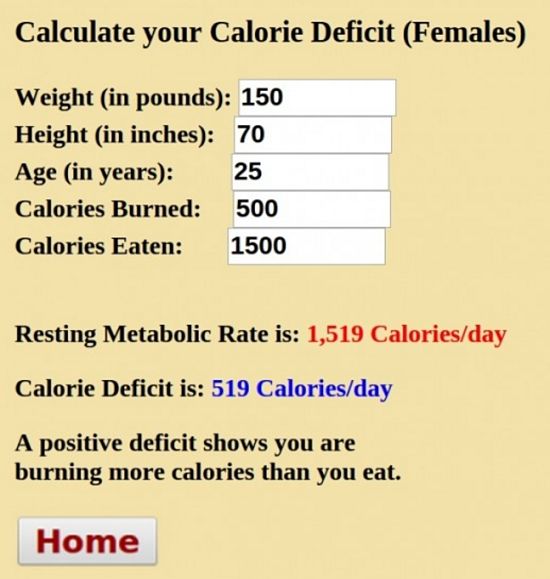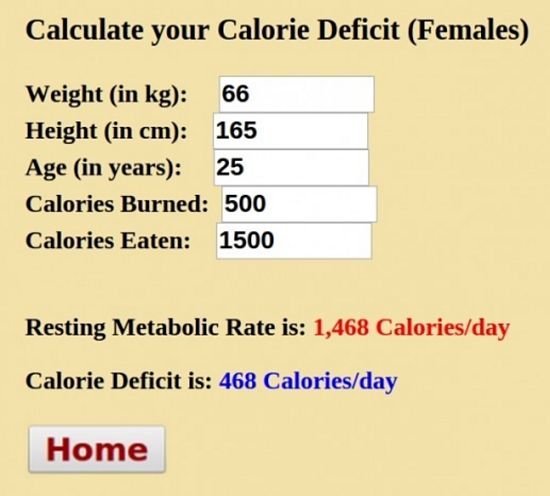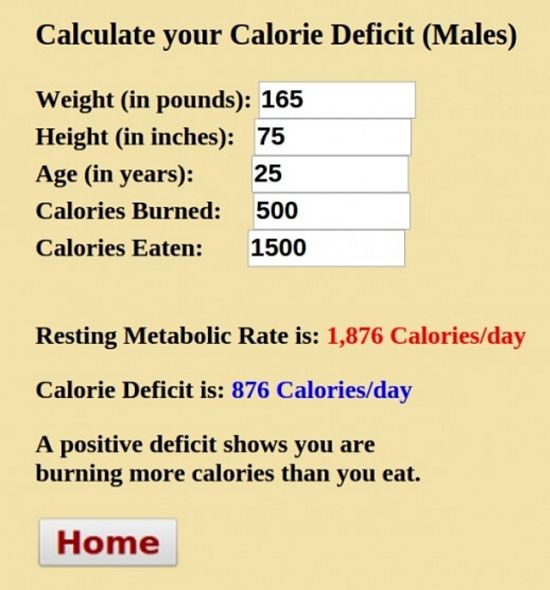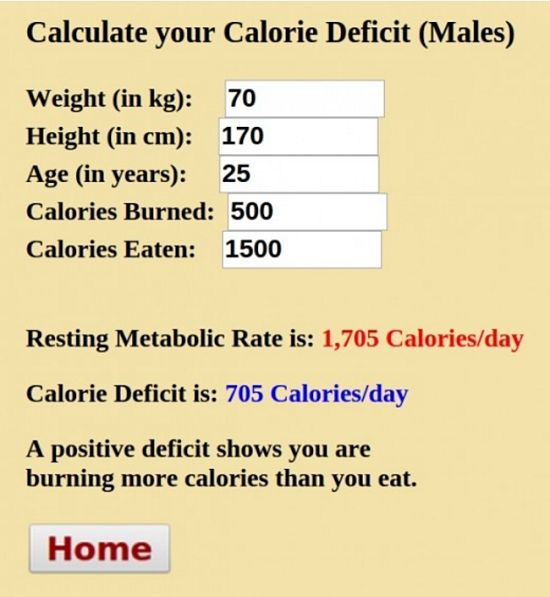Jump to Calorie Deficit Section
Facts, Tips, Advice for Dieting, Weight Loss Using Calorie Deficit Methods
While there is a huge focus on diets and weight loss methods there is less emphasis on weight control.
It has been proven that more than 70% of diets and other efforts to shed excess weight fail in the longer term.
Most people that start a diet and lose some weight, quickly put the excess pounds and kilos back on when they stop dieting.
This site provides articles on tips, guides and advice on the best methods for controlling your weight in the longer term.
It includes articles on the best and most effective diets and food choices to restrict your calorie intake to lose weight and to control
your weight. It features tools and tips for using CALORIE DEFICIT METHODS for weight loss and weight control.
There is a wonderful Calorie Deficit TRACKER APP (see the menu above)
for monitoring your weight loss progress, and your calorie deficit calculated from calories eaten in food and burned through exercise and
resting metabolism.
All the articles are written by experts in dieting and human nutrition. Reliable peer-reviewed references are provides so that readers can check the advice and recommendations provided in the articles. The references also provide additional sources of information for readers interested in the topic.
It is strange that the topic of excess weight and diets is so poorly understood, especially when the world is facing and obesity epidemic that is likely to affect the majority of people on earth. Humans can send astronauts to the moon and robots to Mars and beyond, but there is no answer to obesity and its health consequences. DeSizeMe.com aims to provide real and effective answers to weight loss and weight control problems that are practical, simple and effective.
There is strong evidence that extensive food processing that began in the 1970's is largely to blame. The food 'The West' eats and exports is so rich that people 'passively' eat too many calories, that is by eating their standard '3 meals a day'. It is passive because these people overeat without deliberately gorging themselves on fast foods and poor quality foods.
=> At Last - Cause of Global Obesity Identified - We Passively Eat Too Many Calories
Added to this is the major increase in portion sizes and meal sizes that people eat compared with the 1950's.
=> Key Causes of Obesity Identified - Snacking, Upsizing, Enlarged Portion Sizes, Overeating
This 'up-sizing' creates a 'double whammy' impact magnifying the outcome from the richness of processed foods. The solution is to eat less both in terms of volume and in terms of the rich processed foods, by eating more whole unprocessed foods rich in fiber that 'fill you up'.
This site includes a range of articles that dispel the myths and showcase the truth about dieting, weight loss and weight control.
The site layout is fully-responsive and follows the principle of 'mobile-first design'. This means that the priority for the layout is for effective display on small screens for mobile devices. The images, tables and all other elements re-size to fit the screen size of the user's device. The search tool to on every page is the best way to search for the topics that interest you.
This means that the information and layout always looks similar no matter what device the user is using.DeSizeMe.com welcome articles from experts in dieting and weight control. Contact the team for more information. We also welcome comments and feedback from our users and audience.
Calorie Deficit
The simple key to successful weight loss programs is to burn more calories than you eat. There are a lot of myths about negative calories and various magic potions and guides for losing weight that are mumbo jumbo. The secret for losing weight is simple - you need to eat less food and fewer calories each day for the rest of your life. Exercising more, and changing your lifestyle helps as well as you will burn more calories. If you consume less calories than you burn through exercise and your generally metabolism at rest you will lose weight. This is called a calorie deficit. If you add up the calories you eat and subtract the calories burnt in your generally metabolism at rest and via exercise you get an estimate of your calorie balance. If it is negative - that is you burn more calories than you consume in food you have a calorie deficit. Your body has to break down fat or protein to make up the difference. This means that you will lose weight over time. If your daily calorie balance is positive your body will produce more fat and store it somewhere.
Recent research has confirmed that there is a set-point weight for each person. The body has a built-in response to starvation or calorie reduction. The resting metabolic rate is slowed. This means that when you diet it gets harder to create and maintain a calorie deficit so that you lose weight and keep it off.
Many people who lose weight through dieting quickly put the weight back on when they resume their normal diet and eating patterns. Successful weight loss requires major permanent changes to lifestyles including meal and portion sizes, diets and exercise routines. Monitoring your calories and keeping a calorie deficit or a near zero calorie balance will ensure you do not put the weight you lose back on when you stop dieting.
This site has a number of tools to help you understand, monitor and track your calorie deficit:
Up to date Articles about Calorie Deficit and effective weight Loss
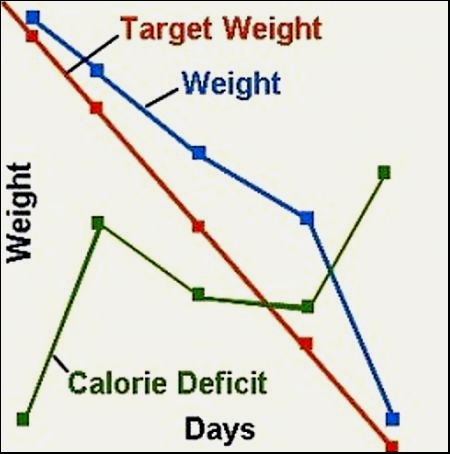
Calorie Deficit WebApp - This simply tool helps you to check whether you have a calorie deficit each day. There are male and
female versions using pounds and kilograms for body weight. You enter your height and weight and the tool calculates the number of calories you burn at rest
(resting metabolic rate). You then enter the calories you eat in food and burn through exercise. The tool then calculates your bet calorie balance for the day.
